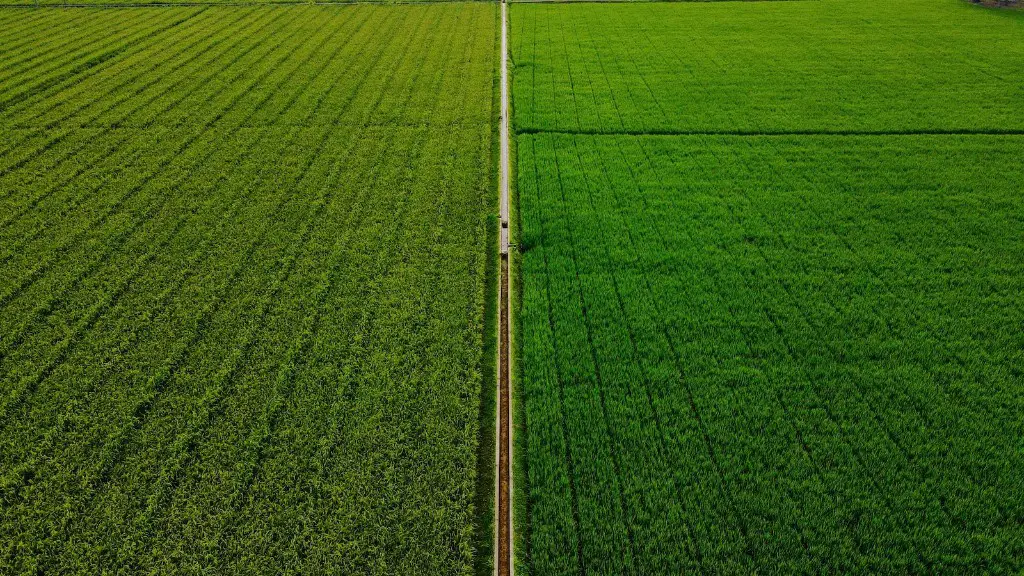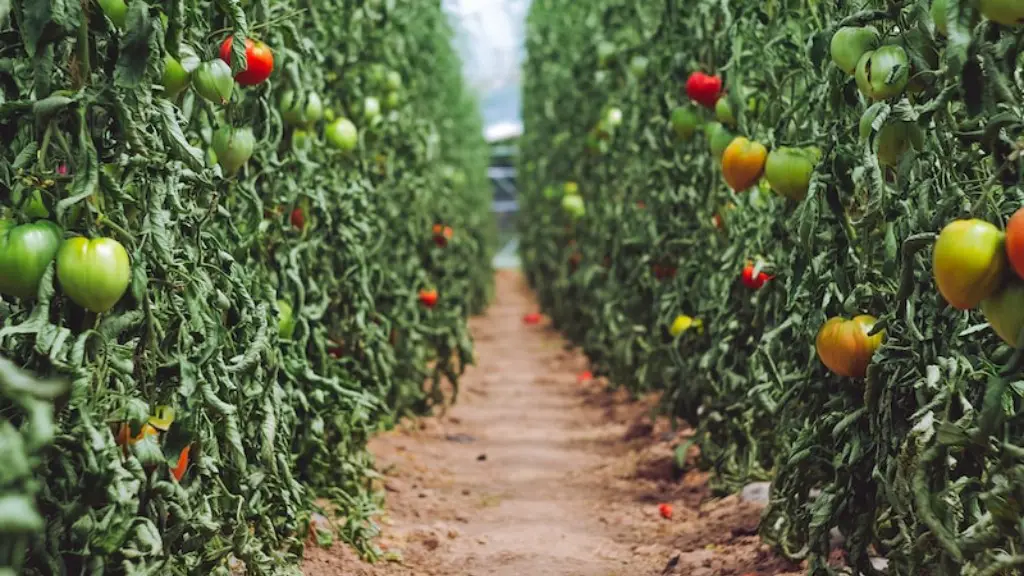Microorganisms are essential for agriculture for a number of reasons. They help to decompose organic matter, which makes nutrients available to plants. They also help control plant diseases and pests. Additionally, microorganisms are used in biotechnology to develop new crop varieties and to improve crop yield.
Microorganisms are essential for agriculture because they help to break down organic matter, release nutrients into the soil, and improve soil structure. They also play a role in plant disease control and help to decompose crop residues.
Why microorganisms are essential for agriculture Brainly?
Microorganism plays a very important role in agriculture. The soil microbes (bacteria and fungi) are essential for decomposing organic matter and recycling old plant material. Humus helps the soil retain moisture, and encourages the formation of soil structure. All of these factors are essential for healthy plant growth.
Azotobacter, Serratia, Bacillus, and Pseudomonas are all microbes that have the potential to be agriculturally important. Azotobacter can fix nitrogen, Serratia can produce enzymes that break down plant cell walls, Bacillus can produce antibiotics, and Pseudomonas can help plants to uptake nutrients. All of these microbes can improve plant growth and yield, and so they are important to consider when thinking about ways to improve agriculture.
Why do microbes play an important role in agriculture management
Microorganisms play an important role in soil fertility. Certain microbes, like bacteria, are very good decomposers. They decompose dead organic matter, which when mixed with the soil makes it fertile.
Microorganisms play a vital role in the Earth’s ecosystem by helping to generate oxygen and carbon dioxide, as well as fix atmospheric nitrogen into useable forms for multiple organisms. They also help animals ingest food by being part of the gut microbiome. Some species of microbe are symbiotic in nature, meaning they have a mutually beneficial relationship with other organisms.
What are the five importance of microorganism?
Microorganisms play a vital role in human welfare. They are involved in various processes such as processing and preservation of food, production of biomolecules, manufacture of pharmaceutical products, cosmetics industries, recycling the nutrients in the soil and so on. Listed below are some of the applications of microorganisms in human welfare:
1. Processing and preservation of food: Microorganisms are used in the processing of various food items such as cheese, yogurt, bread, beer, wine, etc. They help in the fermentation of these food items and also act as a preservative.
2. Production of biomolecules: Microorganisms are used in the production of various biomolecules such as vitamins, enzymes, hormones, etc. These biomolecules are used in various industries and also have several medicinal applications.
3. Manufacture of pharmaceutical products: Microorganisms are used in the manufacture of various pharmaceutical products such as antibiotics, vaccines, etc. They help in the production of these products on a large scale.
4. Cosmetics industries: Microorganisms are used in the manufacture of various cosmetics such as soaps, shampoos, etc. They help in the production of these products on a large scale.
5. Recycling
Microorganisms play an important role in agriculture by providing essential nutrients for plant growth, controlling pests and pathogens, and improving soil fertility. Nitrogen fixation is a key process for plant growth, and microorganisms are essential for this process. Phosphate solubilisation and potassium mobilisation are also important for plant nutrition, and microorganisms can help to improve these processes. Antagonism towards pests and pathogens can help to control crop diseases and improve crop yields. Therefore, the role of microorganisms in agriculture is indispensable.
What is the role of microorganisms in organic farming?
Microorganisms play an important role in the uptake of nutrients by plants. They convert complex organic material into simple compounds that can be easily absorbed by plants. In addition, microorganisms release growth-promoting hormones that enhance root proliferation. Microorganisms are environmentally friendly and cleanse the plant from precipitated chemical fertilizers.
Soil microbes are an important part of keeping soil healthy and productive. They perform essential functions such as nutrient cycling, breaking down crop residues, and stimulating plant growth. While the role of microbes in maintaining soil health is clear, the soil biological component is difficult to observe and manage.
What are the 10 benefits of microorganisms
Microorganisms are tiny organisms that are found everywhere in the environment. They are important in many different ways, including in the production of food and drinks, in sewage treatment, and as insecticides. Some microorganisms are even used to produce medicines.
It is well known that plants need a variety of nutrients and minerals in order to grow properly. However, what is less known is that microbes can actually help make these nutrients and minerals available to plants. Additionally, microbes can produce hormones that spur plant growth, stimulate the plant immune system, and trigger or dampen stress responses. In general, a more diverse soil microbiome results in fewer plant diseases and higher yield.
What microorganisms are helpful and why?
Probiotics are live beneficial microorganisms that naturally live in a living body. These good microorganisms can pass through the upper intestinal tract and habitat in the colon. Probiotics play an important role in enhancing human health.
There are many different types of probiotics, and they can be found in a variety of food sources, such as yogurt, sauerkraut, and kimchi. Probiotics are also available in supplement form.
The health benefits of probiotics include improved digestion, reduced cholesterol, improved immune function, and prevention of diarrhea and other gastrointestinal disorders. Probiotics also seem to boost mood and reduce anxiety.
If you are considering taking a probiotic supplement, be sure to check with your doctor first, as some probiotic strains can cause intestinal distress in people with certain medical conditions.
Our bodies are home to numerous microbes, which play an important role in many bodily processes. For example, microbes help with digestion, produce vitamin K, promote development of the immune system, and detoxify harmful chemicals. Additionally, many delicious foods would not be possible without microbes, such as bread, cheese, and wine. Therefore, we should appreciate the importance of microbes in our lives!
What are the effects of microorganisms to farmers
Microorganisms are known to play a vital role in agriculture and horticulture, where they can be used to promote plant growth. Microorganisms can increase phytomass production, nutrient uptake, photosynthesis rates, and grain yield, which can result in higher profits for farmers. In agriculture, microorganisms can be used to improve crop yields, by providing essential nutrients and increasing soil fertility. In horticulture, microorganisms can be used to improve plant growth and yield, by increasing photosynthesis and nutrient uptake.
Organic systems, such as gardens and permaculture systems, rely on microbes to convert organic matter into available nutrients. By doing this, these systems create more nutrient-rich soils while also reducing the amount of waste. Additionally, plants in organic systems rely on beneficial microbes to help boost their immune responses and overall plant health.
What is the importance of microorganisms in food?
Microbiology is an important aspect of food safety, production, processing, preservation, and storage. Microbes such as bacteria, molds, and yeasts are employed in the production of food and food ingredients, such as wine, beer, bakery products, and dairy products.
Microbes are tiny organisms that play a big role in agriculture. They include fungi, bacteria and viruses. Farmers and ranchers often think of microbes as pests that are destructive to their crops or animals (as well as themselves), but many microbes are actually beneficial. Soil microbes (bacteria and fungi) are essential for decomposing organic matter and recycling old plant material. This process of decomposition releasing nutrients that are then taken up by plants is called mineralization. Some bacteria also form symbiotic relationships with plants, providing them with essential nutrients in exchange for sugars. These beneficial bacteria are called nitrogen-fixing bacteria because they convert atmospheric nitrogen into a form of nitrogen that plants can use. Nitrogen is an essential nutrient for plant growth, so these bacteria play a vital role in agriculture.
What is the main focus of agricultural microbiology
Agricultural microbiology is a relatively new field of study that is concerned with the role of microbes in agriculture. Agricultural microbiologists aim to understand how microbes can be used to improve agricultural practices and to address problems caused by a lack of biodiversity in microbial communities.
The possibility of the annihilation of most humans and nonmicroscopic life on the planet is a very real one. A prolonged period of starvation, disease, unrest, civil war, anarchy, and global biogeochemical asphyxiation would lead to the death of billions of people and the destruction of most life on Earth. This would be a catastrophic event of unimaginable proportions.
Conclusion
Microorganisms are essential for agriculture for a number of reasons. They help to break down organic matter, making it easier for plants to absorb nutrients. They also help to control pests and diseases, and can improve soil fertility.
Microorganisms are essential for agriculture for many reasons. They help to break down organic matter, provide nutrients for plants, and help to control pests and diseases. In addition, microorganisms play a role in the decomposition of crop residues, which helps to improve soil fertility.





